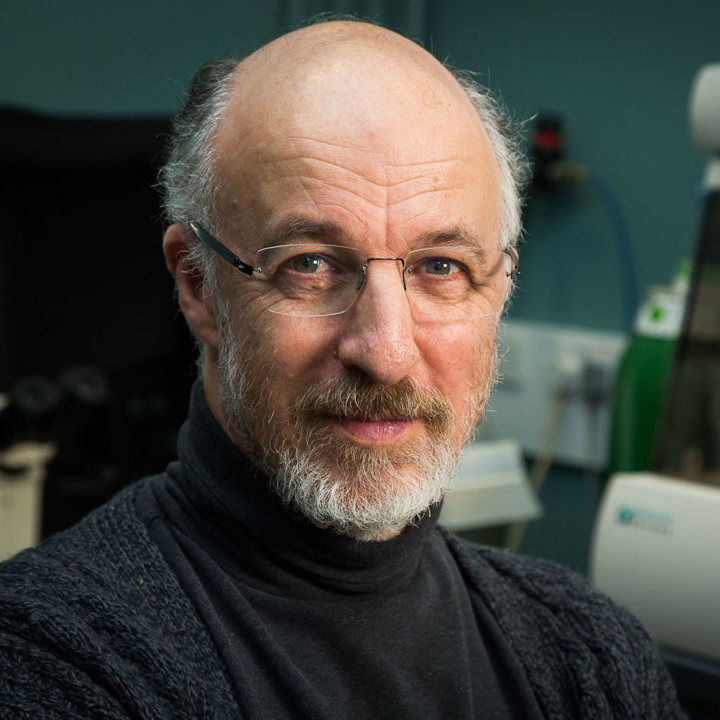
The Keilin Memorial Lecture
The Keilin Memorial Lecture recognises outstanding work in the field of bioenergetics, electron transfer, and mitochondrial biology.
The Keilin Memorial Lecture was first awarded in 1964 to commemorate the late David Keilin.
The lecturer and subject of the lecture are selected, by the Awards Committee, from a field related to the interests of Keilin in bioenergetics, electron transfer, and mitochondrial biology.
Announcing our 2026 Award winners
Congratulations to Professor Bill Rutherford (Imperial College London)!
Find out more about Bill below
The recipient is given:
- £2,000 prize money
- The Keilin Memorial Lecture medal
- The opportunity to present a lecture at a Society event or webinar
- An invitation to submit an article to one of our journals, with any fees waived
Eligibility criteria:
- Awarded biennially
- Nominees should be working in a field related to the interests of Keilin e.g., bioenergetics, electron transfer, and mitochondrial biology
- Nominees are typically mid to senior career
- Nominees can be either international or UK based
- This award is only open to individuals
The Awards Committee will consider the following aspects of all nominations for The Keilin Memorial Lecture as appropriate:
- Originality of research
- Impact and scope of research
- Quality of outputs – publications and/or patents and/or software
- Commitment to build, support, and nurture future talent e.g., mentorship
- Other indicators of esteem demonstrated by the nominator

Previous Award article
Leonid Sazanov published a review article ''From the ‘black box' to ‘domino effect' mechanism: what have we learned from the structures of respiratory complex I' in the Biochemical Journal.
Read moreContact us
For further information please get in touch with the Awards department.
Related content
5 itemsRecipients
Bill Rutherford
Bill Rutherford
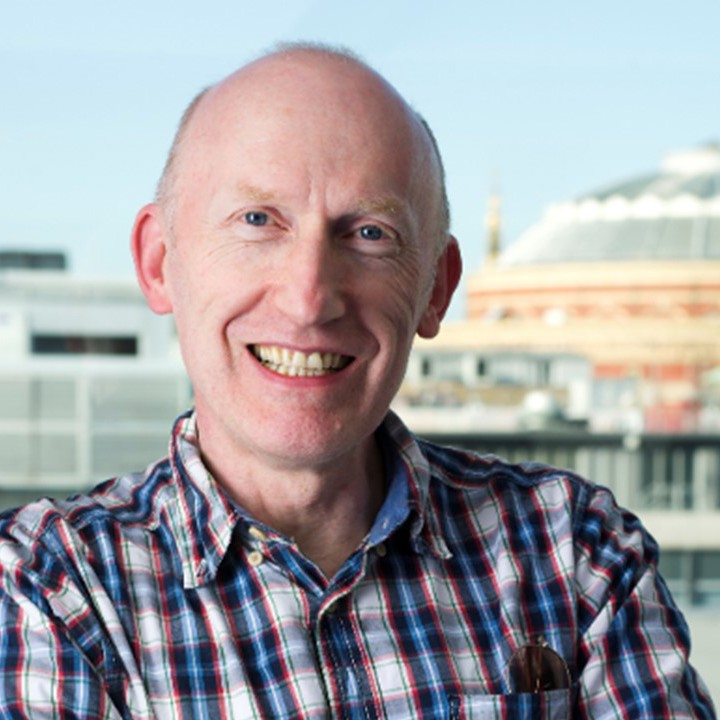
The Keilin Memorial Lecture will be presented to Professor A. W. Rutherford in 2026. Bill is a field leader in photosynthetic bioenergetics, focusing on photochemical reaction centres and water oxidation. Evolutionary thinking gave him an edge when interpreting ambiguous biophysical data. He did Biochemistry at the University of Liverpool, a PhD at University College London, post-doctoral work at the University of Illinois, Riken (Saitama) and CEA-Saclay, before joining the CNRS. In 2011, he moved to Imperial College London. Bill followed his own interests, producing discoveries and concepts central to the field. These include: i) the Photosystem 2 (PS2) chlorophyll triplet responsible for singlet oxygen-induced photodamage that limits plant growth, ii) the PS2 primary electron donor, ChlD1; iii) the mechanism of PS2 herbicides (photo-oxidative stress), iv) the origin and mechanism PS2 thermoluminescence, v) the role of bicarbonate in PS2 (protection by redox tuning).
In 2012, Bill introduced the concept that redox tuning is required for life in O2, explaining anomalies in photosynthetic and non-photosynthetic bioenergetics. This interest in energy accounting opened new research directions. In 2018 his team showed long-wavelength photochemistry in chlorophyll-f-containing photosystems: a major surprise. This work i) changed the understanding of energy limitations in photosynthesis, ii) linked the number/colour/location of the light-collecting chlorophylls to the bioenergetics of charge separation, iii) provided design concepts for more efficient photosynthesis; and iv) launched a new and active field.
Bill said: “Bioenergetics is the heart of biochemistry. Photosynthetic bioenergetics is the energy input for the biosphere, and it literally changed the planet. It is a privilege to contribute to the understanding of how it works and it is an honour to be on the list of Keilin awardees that includes the names of researchers who have been variously my heroes or friends (and sometimes both) during my career.”
Michael Duchen
The 2024 Keilin Memorial Lecture will be presented to Professor Michael Duchen. Michael was born in South Africa, moving to the UK as a child. He studied Physiology and Medicine at Merton College, Oxford and was fortunate to win a summer scholarship at the Weizman Institute with Prof Roy Caplan where he was introduced to basic principles of bioenergetics. He completed his medical training at St George's Hospital Medical School in London where he then worked as a junior hospital doctor in a range of specialties, including a period working at St Barnabas Hospital, a rural hospital in the Transkei, in South Africa.
After completing the MRCP, he moved to the UCL Department of Physiology to embark on a PhD, supervised by Prof Tim Biscoe. He has stayed at UCL ever since – in fact he still occupies the ‘Starling’ lab in which he did his PhD work, although substantially refurbished! – first as a Royal Society University Research Fellow, then as Reader and Professor.
His early research focused on neurotransmitter receptor biology, but he became interested in mitochondrial bioenergetics first through studies of oxygen sensing in the carotid body, later becoming fascinated by mitochondrial cell biology, in the dialogue between cell signalling pathways and mitochondria, and in the roles of mitochondrial dysfunction in disease, which is where work in the lab is now mostly focused.
On winning the Keilin Memorial Lecture for 2024, Michael said: "I have been incredibly lucky to have a succession of really wonderful young people working with me over the years who have all contributed to this achievement. The award of the Keilin Lecture recognises and validates years of work by that team who I am fortunate to represent. This validation is a great encouragement to pursue new ideas in mitochondrial cell biology with an ambition to understand mechanisms of disease. It would be immensely satisfying for me to complete the circle, applying principles we have learned over many years of work in basic mitochondrial cell biology to identify treatment strategies for people with otherwise intractable clinical problems that I originally encountered as a young doctor. This is my ultimate ambition."
Michael presented his Award lecture at Membrane contact sites in cellular homeostasis on 24 September 2024.
Leonid Sazanov
Leonid Sazanov
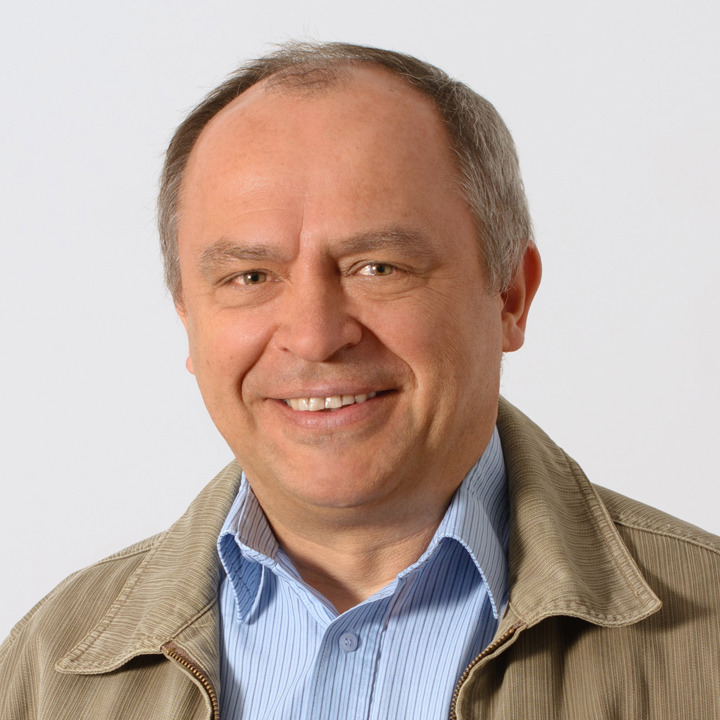
The 2022 Keilin Memorial Lecture will be presented to Professor Leonid Sazanov FRS. Professor Sazanov is currently a Professor at the Institute of Science and Technology Austria near Vienna, Austria and previously was a Programme Leader at the MRC Mitochondrial Biology Unit in Cambridge, UK. His research is pushing the boundaries of structural biology (currently using cryo electron microscopy, previously X-ray crystallography) to study the structure and mechanism of large membrane protein complexes from the domain of bioenergetics, including respiratory complex I and ATP synthase.
Leonid said: “Ever since I was a graduate student in biophysics I was fascinated by energy transduction in nature, seeing how fundamental physical principles lead to the evolution of ever more complex molecular machines in photosynthesis and respiration. It is always amazing to be the first in the world to see the intricate architecture of such machines, when the structure emerges from the sea of data. I am delighted to be awarded The Keilin Memorial Lecture and Medal, following in the footsteps of many distinguished figures in the bioenergetics field. This is a real honour for me and for all the talented students and postdocs with whom I have worked.”
Leonid presented his Award Lecture at the UK Xmas Bioenergetics Meeting on 16 December 2022 in London.
Read Leonid's article published in the Biochemical Journal - From the ‘black box' to ‘domino effect' mechanism: what have we learned from the structures of respiratory complex I
Judy Hirst
Judy Hirst
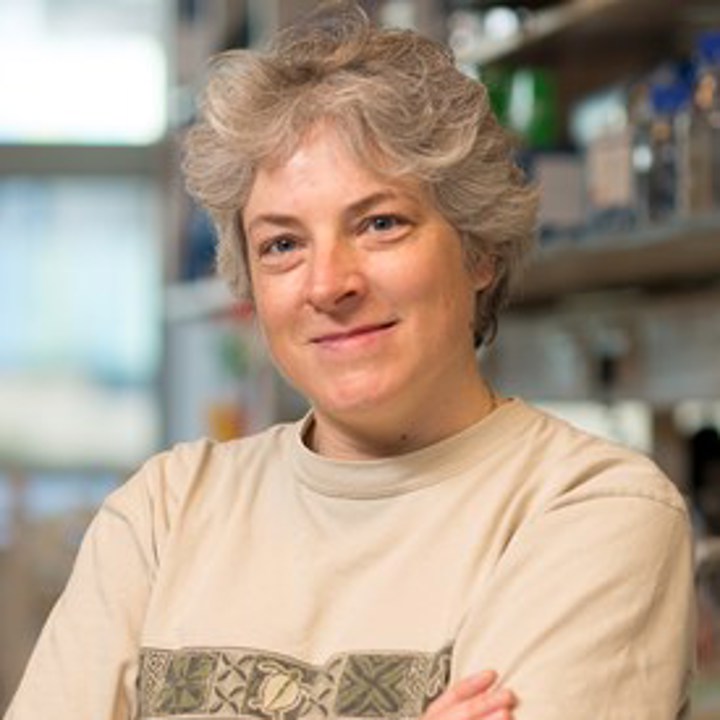
The 2020 Keilin Memorial Lecture was awarded to Professor Judy Hirst of MRC Mitochondrial Biology Unit, UK.
Judy’s research has made pivotal contributions to understanding energy conversion in complex redox enzymes: how they capture the energy released by a redox reaction to power proton translocation across a membrane, or catalyse the interconversion of chemical bond energy and electrical potential. She is known particularly for her work on mammalian respiratory complex I (NADH: ubiquinone oxidoreductase), an energy-transducing, mitochondrial redox enzyme of fundamental and medical importance, and for solving its structure by electron cryomicroscopy. Judy was elected as a Fellow of the Royal Society in 2018.
Judy said: “I am delighted to have been selected to receive the Keilin Memorial Lecture Award. I feel this award recognizes the importance of taking on challenging long-term research projects at the boundaries of basic and biomedical science, and have been fortunate to have been supported by The Medical Research Council throughout – as well as by a team of talented and enthusiastic students and postdocs.”
Judy presented her Award lecture on Monday 7 December 2020 during ‘Low molecular weight thiols: lessons learned and new perspectives’ online conference.
Neil Hunter
Neil Hunter
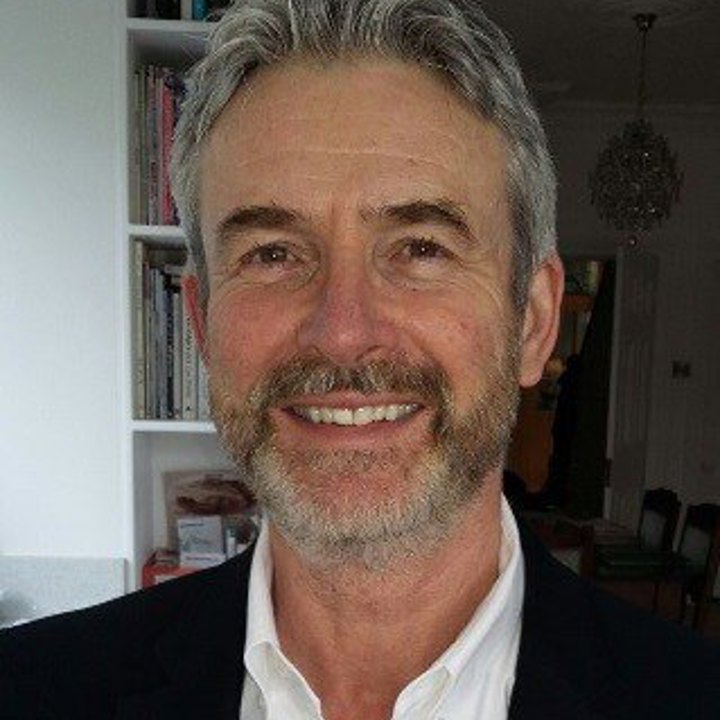
The 2018 Keilin Memorial Lecture was presented to Neil Hunter, who holds the Krebs Chair of Biochemistry at the University of Sheffield. Neil’s research on energy and electron transfers in microbial photosynthesis recently culminated in a complete structural and functional description of an energy-transducing membrane, from collecting sunlight to charge separation, quinone migration, generation of a proton gradient, and finally catalysis by the ATP synthase. Neil has also made major contributions to understanding the biogenesis of the haem, bacteriochlorophyll, chlorophyll and carotenoid cofactors, and their assembly into energy, electron and proton transfer complexes…
Read Neil's article published in the Biochemical Journal - Dissecting the cytochrome c2–reaction centre interaction in bacterial photosynthesis using single molecule force spectroscopy.
Of winning the Keilin Memorial Lectureship, Neil said “I am delighted and honoured to be the recipient of the Keilin Medal and Lecture, particularly because I join a list of eminent recipients of this award. I would like to thank past and present members of my research group and my many collaborators for their contributions over the last thirty three years.”
Neil presented his award lecture at the 84th Harden Conference: Single- molecule bacteriology on 9-12 September 2018 at Lady Margaret Hall, Oxford, UK.
Michael Murphy
Michael Murphy
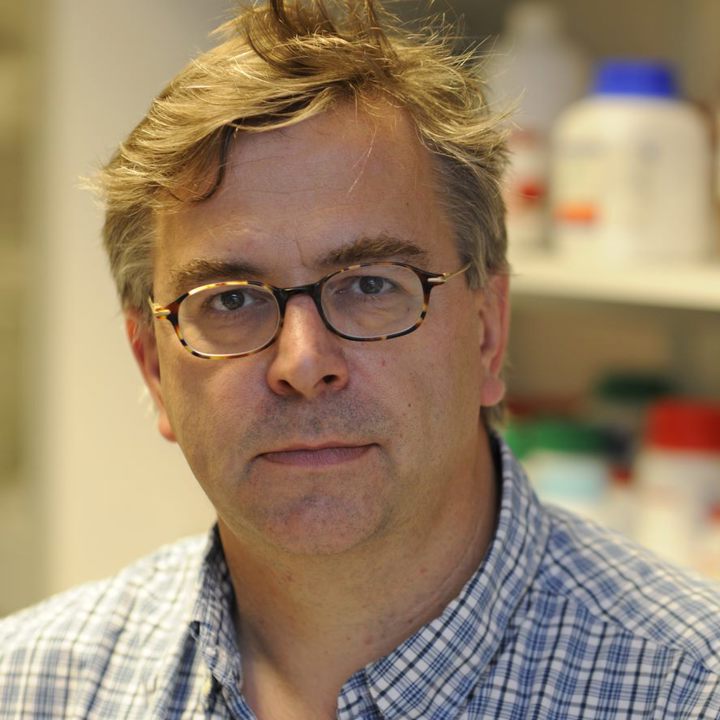
The Keilin Memorial Lecture in 2016 was presented to Michael Murphy (MRC MBU, Cambridge, UK) for his contribution to research in basic and applied bioenergetics. Michael has produced influential discoveries in the last 20 years showing the detailed mechanisms of mitochondrial oxidant production and has pioneered translational redox bioenergetics.
Michael Murphy gave his award lecture at the 79th Harden Conference: Oxygen Evolution and Reduction – Common Principles, Grauer Bär, Innsbruck, Austria, 16—20 April 2016.
Read Michael's article published in Biochemical Society Transactions - Understanding and preventing mitochondrial oxidative damage.
Vamsi Mootha
Vamsi Mootha

John Walker
John Walker

Andrew Halestrap
Andrew Halestrap

Hartmut Michel
Hartmut Michel

Martin D. Brand
Martin D. Brand

Peter R. Rich
Peter R. Rich

Stuart J. Ferguson
Stuart J. Ferguson

Shinya Yoshikawa
Shinya Yoshikawa

Marten Wikstrom
Marten Wikstrom

P. Leslie Dutton
P. Leslie Dutton

L. Ernster
L. Ernster

W. Hol
W. Hol

Q.H. Gibson
Q.H. Gibson

R. Huber
R. Huber

H. Beinert
H. Beinert

M.G. Rossmann
M.G. Rossmann

J. Kraut
J. Kraut

S.M.E. Magnusson
S.M.E. Magnusson

E.C. Slater
E.C. Slater

R.J.P. Williams
R.J.P. Williams

E. Margoliash
E. Margoliash

F. Eigen
F. Eigen

B. Chance
B. Chance

A. Lwoff
A. Lwoff

Share this page!
The Keilin Memorial Lecture
The Keilin Memorial Lecture was first awarded in 1964 to commemorate the late David Keilin. The lecturer and subject of the lecture are selected, by the Awards Committee, from a field related to the interests of Keilin in bioenergetics, electron transfer, and mitochondrial biology.
